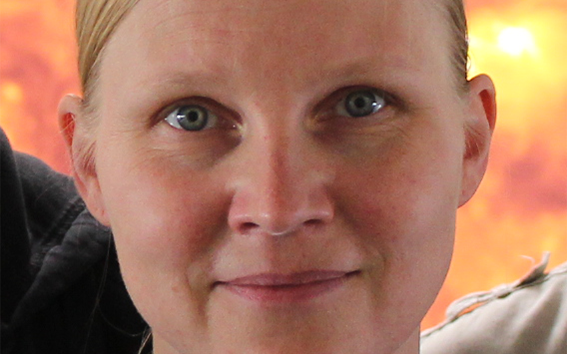Maarit Käpylä, ReSoLVE Centre of Excellence, DYNAMO team (Aalto University)
"If engineering is your true vocation, working as a woman in a male-dominated field is the least of your worries, in fact not a worry at all!"

"If engineering is your true calling, working as a woman in a male-dominated field is the least of your worries, in fact not a worry at all."
Maarit Käpylä has a major in astronomy and minors in computer science and mathematics. "I ended up as a kind of astronomer mutant because I had the opportunity to do astronomical applications with the tools I know best. So theory and coding". Choosing a field of study that met all her personal interests was easy for Maarit.
Her interests continued to guide her career choice. Just before graduating, Maarit considered giving up astronomy, as she was tired of her thesis subject and was attracted by the world of work outside the university. In the end, however, an international lecturer at the Lapland Winter School sparked great enthusiasm in Maarit, and she found her thesis topic during a series of lectures over a few days. "After graduation, I immediately applied for postgraduate studies, stopped everything else but science, and that's the path I'm on", Maarit says.
Maarit's day starts at the crack of dawn: "Kids to school, myself to work - two hours of efficient working time before the rest of the group gets to work". Independent tasks include reading and writing scientific articles, running simulations on supercomputers and analysing the results of the work done.
The group discusses how others are progressing with their tasks and what to do next. As the leader of her group, Maarit is also responsible for the day-to-day running of her team with the administration, which sometimes makes her grit her teeth and pull at her hair. "Not necessarily always because the administrators drive me crazy with their rules and requests, but also because I really have to force myself to do these important things that I am really not motivated to do", Maarit describes.
In the afternoon there is time for family and in the evening, after the children have gone to bed, work continues for a while. "I have collaborators both in the Far East and the West, and they don't sleep at night like I do". In practice, Maarit spends 8 to 10 hours a day at the computer and to avoid numbness, she cycles or runs on her commute. But despite the pressure, working on an interesting subject is rewarding: the best part is that you get to do work that you are highly motivated and skilled at. In her own career, Maarit is particularly pleased that she has never been stuck doing the same old thing. "I was a shy, quiet and introverted young girl who took far too long to have the courage to be herself - I wish I could have done it earlier". In the future, Maarit aims to add value to her research fields through frontier-breaking research, solving problems that seem impossible with traditional approaches.
For whom is this a suitable career option?
Maarit has a clear vision: "If you feel you can't even boil water, but you find differential equations understandable, even beautiful, you're just a hopeless nerd like us, regardless of age or gender. However, normality and practical skills are not a disadvantage, in fact they are desirable". She stresses how the best starting point is choosing a field based on genuine interest. "If engineering is your true vocation, working as a woman in a male-dominated field is the least of your worries, in fact not a worry at all". In some cases, a dream career may require self-development and overcoming your own limits, but Maarit sees this as a good thing. These talents are very necessary in life anyway!